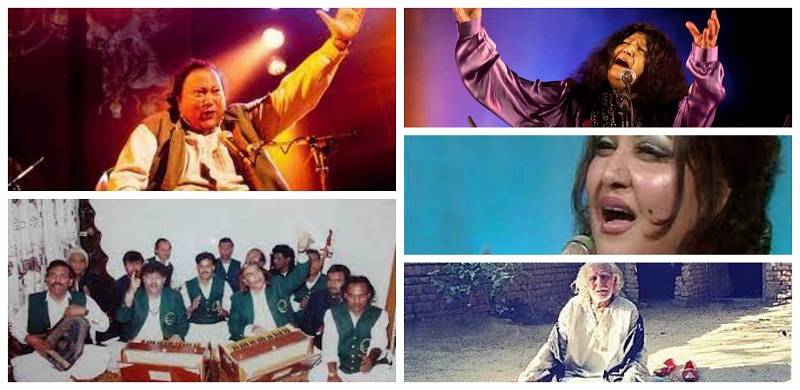
Hai Jazba Junoon to himmat na haar
Justajoo jo kurey woh chuey aasman.
Pakistan Hai Hamara
-Salman Ahmed
Background and Context
Culture is the lifeblood of a nation and an individual.
My own life experience points toward being influenced by powerful books, films, music and poetry. It’s an area of creative freedom and imagination largely neglected and/or suppressed in most backward societies.
To encourage positive change, to educate and entertain, Pakistan must have a clear cultural policy which showcases our unique and rich history, human diversity, and a clear vision forward.
Pakistani original cultural content aligned with government-backed protections, promotion, performance platforms, rewards and incentives would have deep and long lasting cultural impact in today’s tech-driven, competitive youth environment.
For nearly 75 years, arts and culture has been like a plant or sapling which requires replanting like trees. It’s very fragile but once it takes root, it gives fruit for centuries and millenniums.
We are very fortunate that poets like Iqbal took the time to pen down their thoughts, which lit candles in the hearts of millions. It has inspired musicians, singers, thinkers, philosophers, politicians, and poets.
A generation of Pakistanis grew up on transformational poets like Faiz Ahmad Faiz, Habib Jalib, and Parveen Shakir.
In the genres of qawwali, tarana, ghazal, film and folk, Nusrat Fateh Ali Khan, the Sabri brothers, Mehdi Hasan, Noor Jehan, Abida Parveen, and Pathaney Khan inspired another generation of modern and traditional artists like Runa Laila, Tina Sani, Nazia and Zoheb, Vital Signs, Junoon, Rahat Fateh Ali Khan, Atif Aslam, Ali Zafar and Strings (to name just a few).
But two decades on, since 9/11, the war on terror, violent extremism, fear, apathy, lack of copyright protection, and more recently the COVID-19 pandemic, has decimated arts and culture in Pakistan. A huge vacuum has been created which has marginalised artists and made them into an endangered species.
Pakistan, the second youngest population in the world, has a cultural vacuum which is being bombarded by western and Indian content. The few noteworthy music opportunities on television have been marred by corruption, plagiarism, and scandal.
This dangerous imbalance and structural dysfunction needs to be rectified. Pakistan’s arts and culture requires fortification and a road map to stability over the coming decade.
The Vision
Justajoo jo kurey woh chuey aasman.
Pakistan Hai Hamara
-Salman Ahmed
Background and Context
Culture is the lifeblood of a nation and an individual.
My own life experience points toward being influenced by powerful books, films, music and poetry. It’s an area of creative freedom and imagination largely neglected and/or suppressed in most backward societies.
To encourage positive change, to educate and entertain, Pakistan must have a clear cultural policy which showcases our unique and rich history, human diversity, and a clear vision forward.
Pakistani original cultural content aligned with government-backed protections, promotion, performance platforms, rewards and incentives would have deep and long lasting cultural impact in today’s tech-driven, competitive youth environment.
For nearly 75 years, arts and culture has been like a plant or sapling which requires replanting like trees. It’s very fragile but once it takes root, it gives fruit for centuries and millenniums.
We are very fortunate that poets like Iqbal took the time to pen down their thoughts, which lit candles in the hearts of millions. It has inspired musicians, singers, thinkers, philosophers, politicians, and poets.
A generation of Pakistanis grew up on transformational poets like Faiz Ahmad Faiz, Habib Jalib, and Parveen Shakir.
In the genres of qawwali, tarana, ghazal, film and folk, Nusrat Fateh Ali Khan, the Sabri brothers, Mehdi Hasan, Noor Jehan, Abida Parveen, and Pathaney Khan inspired another generation of modern and traditional artists like Runa Laila, Tina Sani, Nazia and Zoheb, Vital Signs, Junoon, Rahat Fateh Ali Khan, Atif Aslam, Ali Zafar and Strings (to name just a few).
But two decades on, since 9/11, the war on terror, violent extremism, fear, apathy, lack of copyright protection, and more recently the COVID-19 pandemic, has decimated arts and culture in Pakistan. A huge vacuum has been created which has marginalised artists and made them into an endangered species.
Pakistan, the second youngest population in the world, has a cultural vacuum which is being bombarded by western and Indian content. The few noteworthy music opportunities on television have been marred by corruption, plagiarism, and scandal.
This dangerous imbalance and structural dysfunction needs to be rectified. Pakistan’s arts and culture requires fortification and a road map to stability over the coming decade.
The Vision
- Create artistic spaces & platforms in academic institutions across the country.
2. Provide cultural platforms for competitive growth of new artists.
3. Promote Pakistani cultural content over foreign content as policy across the electronic, print, and social media.
4. Institute a talent hunt scheme across the country to unearth future poets, composers, instrumentalists and singers from diverse genres.
5. Enact a prestigious, annual Pakistani award ceremony to promote merit, respect and interest in arts and culture.
6. Create an advisory board of mentors, teachers and experts to oversee the development of arts and culture in Pakistan.
7. Make the music recording industry an institution subsidised by the government.
8. Make venues available for performance based arts and culture.
9. Provide relief to approximately 10,000 families of Pakistani artists and their support staff devastated by the Pandemic.
10. Change the mindset of the nation from despair to hope.

